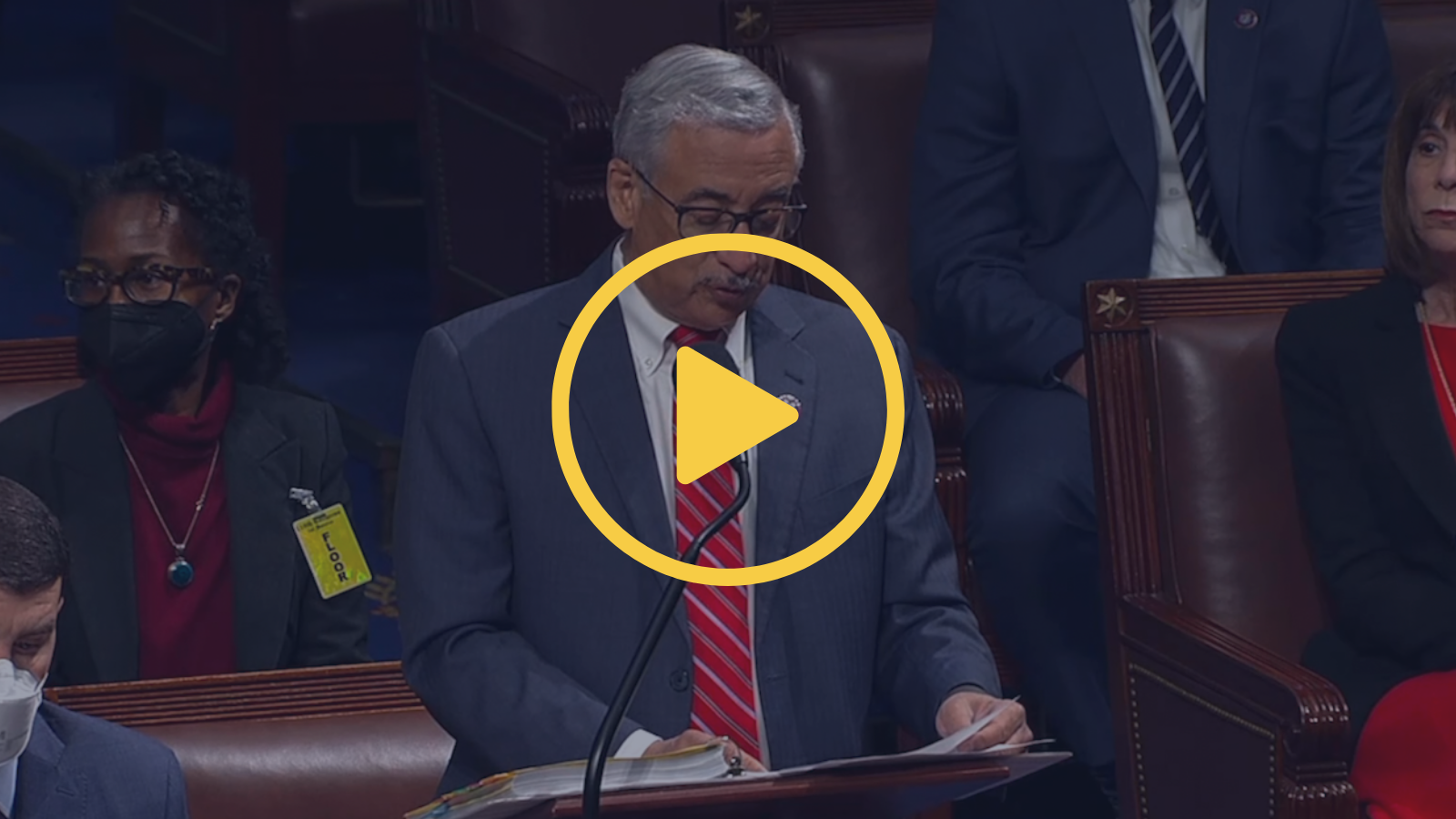Ranking Member Scott Leads Opposition to Bill that Undermines Affordable, Quality Health Care for Workers and Families
“The proposals in H.R. 3799 are yet another recycled, futile attempt to sabotage the Affordable Care Act.”
WASHINGTON – Today, House Republicans voted to pass H.R. 3799, which undermines the Affordable Care Act and jeopardizes essential consumer protections for health care consumers. This legislative package includes H.R. 2813, which prevents critical consumer protections from being applied to stop loss insurance, and H.R. 2868, which erodes consumer protections and increases costs for older and sicker Americans.
View Ranking Member Scott’s floor remarks on YouTube.
Ranking Member Robert C. “Bobby” Scott (VA-03) delivered the following remarks during today’s floor debate on the legislation.
“Madam Chair, the proposals in H.R. 3799 are yet another recycled, futile attempt to sabotage the Affordable Care Act and actually make it harder for workers and families to find affordable, high-quality health insurance.
“This legislative package includes two bills that were marked up by the Committee on Education and the Workforce.
“First is the Association Health Plans Act. This Act undermines the core promise of the ACA—access to affordable health care for all. The faulty legislation may provide lower costs to some enrollees, but it would do so by skimping on benefits and increasing costs for everybody else.
“Specifically, the bill would allow association plans to cherry-pick low-risk, young individuals for a pool separate from the ACA Marketplace. You may hear my colleagues on the other side of the aisle tout the bill’s nominal protections against discrimination based on preexisting conditions, but they omit the details regarding other large loopholes that leave consumers vulnerable to this bill, such as charging higher-risk groups more so that the plan will not be attractive to them. And—for low-risk groups—charge them less so that they will be the ones who come in.
“In fact, this legislation explicitly authorizes AHPs to set premiums based on the ‘specific risk profile’ of employer members, enabling them to charge higher premiums to groups based on their age, gender, and other factors. AHPs could also exclude certain categories of coverage, such as maternity care, mental health, or substance abuse disorder, to dissuade certain groups or individuals from enrolling. And, under the bill, association plans could also evade essential health benefits and other consumer protections under state and federal law.
“So, it is a bad idea because of simple arithmetic. If healthy, low-risk individuals can leave the Affordable Care Act Marketplace risk pool, join a separate association, and pay lower rates, those who did not get into these plans will, on average, pay higher premiums.
“Let’s be clear, only low-cost groups will be in these plans because, if you’re a high-risk group, the cost will be too much and not be attractive. If they’re high-risk groups—pre-existing conditions, older groups, and whatnot—they will not be able to form groups that charge less than the ACA Marketplace, and nobody will want to join.
“So, under the ACA, everybody pays average. If you got a pre-existing condition or not, everybody pays the same and everybody gets insurance at an affordable cost. And everybody enjoys all of the essential benefits under the ACA, but association plans—for example—do not have to provide coverage for essential benefits, like maternity benefits. So, all of the costs of maternity care will be borne by fewer and fewer people. The average cost of insurance for those not in the plan will slowly grow as the number of association plans grows.
“Various versions of this legislation have been pushed by Republicans for decades, but all the iterations suffer from the same fundamental flaw that they shift costs to the most vulnerable. This is why 30 leading consumer and patient groups have expressed serious concerns with this harmful legislation.
“The other bill marked up in the Education and the Workforce Committee was the Self-Insurance Protection Act, legislation that further erodes the ACA by exempting stop loss insurance from key consumer protections.
“The bill would prevent the Secretaries of Health and Human Services, Labor, and the Treasury from regulating stop loss insurance coverage. And, even more troubling, the bill makes it virtually impossible for states to protect consumers from abusive practices by invalidating state laws that regulate stop loss.
“Stop loss insurance usually covers costs above a catastrophic level—say over $1 million—but they can be written to cover anything over $1,000, when they become essentially regular uninsurance—except that they aren’t regulated. No solvency regulations, no benefit regulations, no nothing.
“Yes, we can all agree that small businesses and self-employed people deserve access to affordable health care—that’s what you get under the Affordable Care Act. But we should also agree that people deserve basic consumer protections to ensure that they have insurance with quality, solvency, agency to call if something goes wrong, and coverage for essential benefits.
“That’s why we passed the Affordable Care Act in the first place. And why, when Democrats were in charge in the last Congress, we passed the American Rescue Plan Act and the Inflation Reduction Act to make coverage even more affordable.
“So, the question before us is: Do we want to make sure that every individual can continue to find affordable and quality health-care coverage or do we want to pass H.R. 3799 and create roadblocks for Americans seeking care?
“I would hope that we would oppose this bill, and I reserve the balance of my time.”
Read more about the impact of H.R. 3799 here.
###
Press Contact
Democratic Press Office, 202-226-0853
Next Article Previous Article

